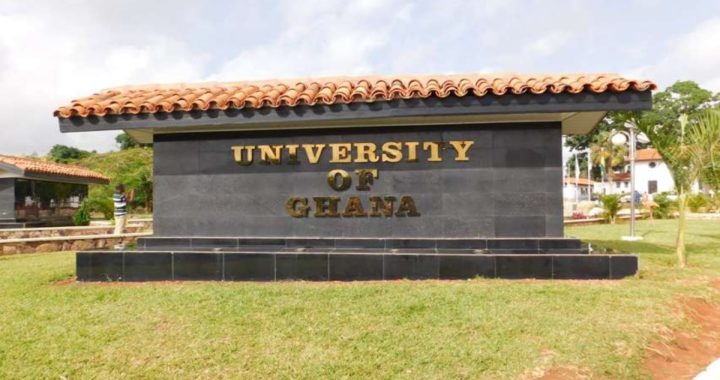Teachers fleeing Ghana as if there is a war—Kwesi Pratt

GES Teacher with student
At the 2023 National Teacher Awards, the Minister of Education made the sad confession that over 10,000 trained teachers from Ghana have been employed by the UK government.
The reality of the revelation is that Ghanaian teachers are not motivated enough by the deplorable motivation that is making many more exit the teaching profession in Ghana.
The sad reality of the exodus of professional teachers from Ghana has been disclosed by the Managing Editor of the Insight Newspaper, Kwesi Pratt.
Mr. Pratt said teachers in Ghana have been left with no option but to seek teaching jobs abroad. According to him, this is the result of challenges faced by educators in Ghana, which have become push factors within the service.
During an interview on Peace FM’s Kokrokoo program monitored by Ghana Education News, raised an alarm. He said the teachers are leaving Ghana today as though the was a war in the country.
“The challenges teachers are facing are not small, that is why they are fleeing; they are fleeing as if there is a war in Ghana.
“16,000 have already left Ghana. Are you going to blame them? Is it their fault?” he questioned.
The mass exodus of teachers and nurses from the shores of Ghana is real.
Over 16,000 Ghanaian teachers have applied for employment with the UK Department of Education, according to the According to a report by the Ghana Education Service.
It added that over 10,000 had been certified to work in the UK by June 2024.
While the government sees this as the export of teachers, it seems to have lost sight of the negative implications of losing professionals to other countries as a result of the poor conditions service teachers employed by the Ghana Education Service have to endure.
There are teachers who completed their training and nations service at least two years ago who are rusting away and do not have jobs. The less said about the backlog of training health professionals in Ghana the better.
Teacher migration from Ghana and the Education Service has several factors.
Low pay and benefits:
Ghanaian teachers are among the lowest paid in the world and have not kept pace with inflation. This, along with a lack of housing and transit assistance, makes it hard for teachers to survive.
Overcrowded and underfunded classrooms:
Many Ghanaian instructors work there. Even unqualified teachers may have to teach many courses. Teachers may experience stress and burnout, making it hard to offer a quality education.
Professional development is scarce for Ghanaian teachers.

This makes it hard for them to keep up with teaching methods and curricular changes.
Better employment abroad:
Many Ghanaian teachers seek positions abroad for higher salary, perks, and working conditions.
The government should commit to raising teacher pay and perks to compete with other nations. This might be done with more government funding and private-sector collaborations.
Improve teacher working conditions: The government should invest in this. Building additional classrooms, giving more resources, and decreasing teacher workloads are examples.
Increase teacher professional development: The government should invest in teacher professional development. Training, workshops, and conferences at no extra cost to educators. Sadly, the introduction of the NTC means teachers have to pay for every service and training offered.
Address the fundamental reasons for teacher dissatisfaction:
The government should address low pay, bad working conditions, and lack of professional development.
These government-led programmes are not the only ways schools and communities can help teachers and keep them. This includes:
Create a pleasant work environment:
Schools should make instructors feel appreciated and respected. Regular employee meetings, feedback, and social activities can help.
READ: Ghanaian teachers employed by UK surpasses 10k in 2023 – MoE
Support teachers:
Schools should help teachers succeed in the classroom. Resources, lesson ideas, and professional development may be provided.
Schools should include the community in helping teachers. Parent-teacher associations, volunteer programmes, and fundraising can help.
The government, schools, and communities may discourage Ghanaian and Education Service instructors from leaving by implementing these methods.
This is crucial to provide quality education to all Ghanaian students.
Send Stories | Social Media | Disclaimer
Send Stories and Articles for publication to [email protected]
We Are Active On Social Media
WhatsApp Channel: JOIN HERE
2024 BECE and WASSCE Channel - JOIN HERE
Facebook: JOIN HERE
Telegram: JOIN HERE
Twitter: FOLLOW US HERE
Instagram: FOLLOW US HERE
Disclaimer:
The information contained in this post on Ghana Education News is for general information purposes only. While we endeavour to keep the information up to date and correct, we make no representations or warranties of any kind, express or implied, about the completeness, accuracy, reliability, suitability or availability with respect to the website or the information, products, services, or related graphics contained on the post for any purpose.


 WASSCE Results Upgrading: Total Scam Or Something Worth Your Money?
WASSCE Results Upgrading: Total Scam Or Something Worth Your Money?  Teacher Unions Start Regional Demo With Volta Region On May 3rd
Teacher Unions Start Regional Demo With Volta Region On May 3rd  How to buy UG Admission Voucher with Momo/Shortcode
How to buy UG Admission Voucher with Momo/Shortcode  Old students build health centre for Awudome SHS
Old students build health centre for Awudome SHS  Move away from traditional theoretical based learning – Prof Abeku Quansah to students
Move away from traditional theoretical based learning – Prof Abeku Quansah to students  Professor Amin Alhassan speaks at 20th Congregation of Islamic University College
Professor Amin Alhassan speaks at 20th Congregation of Islamic University College